The UniFi Consoles, like the UDM Pro, are great devices for a home network or small/medium business networks. But when you have a large environment, with more than 50 access points, or managing sites for multiple clients, then a hosted UniFi Controller is most of the time a better solution.
The problem with a UniFi console is that it can only support a limited amount of access points or clients. A hosted solution, however, allows you to scale and grow beyond the limits of the consoles and manage all your devices or clients from a single console.
In this article, we are going to take a look at the different hosted UniFi controller providers, and compare them with an on-premise controller or hosting your own.
When should you choose a hosted UniFi controller?
The UniFi products are great, they are easy to install, manage, and update. And when you have a home network or a small to medium business environment, then a UDM Pro or Cloud Key G2 will in most situations be more than sufficient.
But when you have a large network, with more than 30 access points, or with more than 300 clients, then you will soon run into the limits of the consoles. For example, a UDM Pro, with Threat Management enabled, is only capable of supporting around 30 to 40 access points.
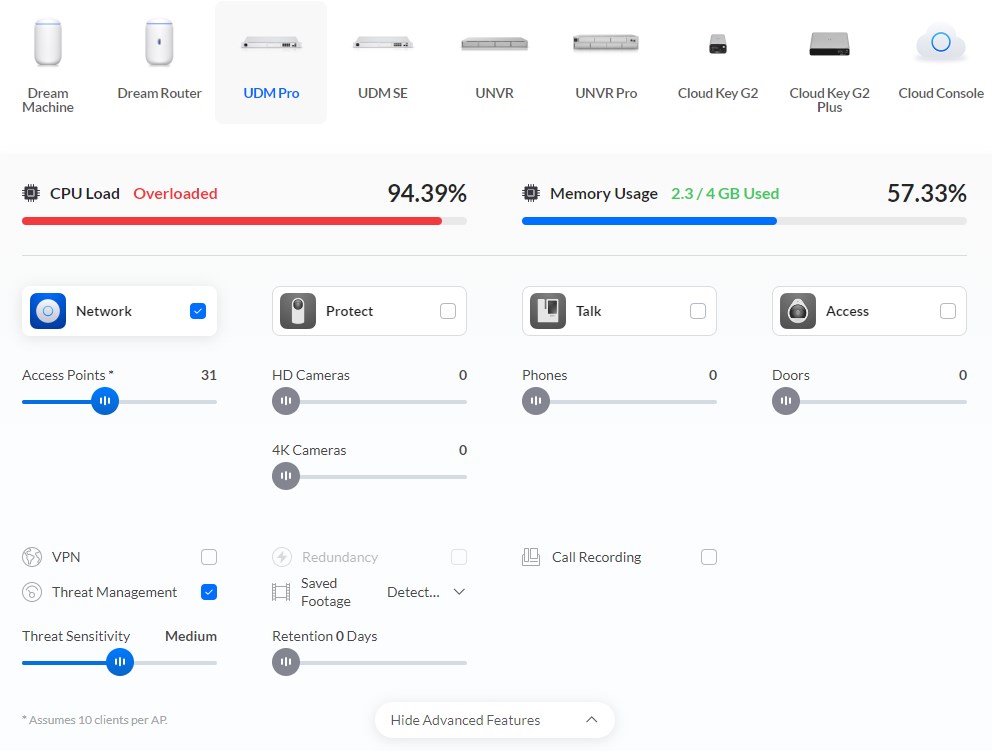
But besides the device limits, stability, uptime, and continuity can also be critical when you manage a large environment. A hosted solution is, for example, easier to restore than replacing a UDM Pro, especially with the chip shortage lately.
Another advantage of the Hosted UniFi Controller providers is that some of them extensively test new UniFi network releases before updating their clients. Resulting in higher uptime and more stability of your UniFi Network.
When it comes down to support you are also sometimes better of with a provider instead of UniFi. The support of UniFi is getting better in the last couple of years, but they can’t always respond as fast as you need. Some providers, like HostiFi, have a lot of knowledge about the UniFi console and products, and can really help you solve those errors a lot quicker.
Before we are going to take a look at the different providers, let’s first take a look at the advantages of a hosted controller.
Hosted UniFi Controller Providers
There are a lot of companies that provide a hosted unifi controller solution. A lot of them try to compete on price, but that isn’t the most important factor. When you manage a lot of devices and clients, you primarily want stability and good support.
So besides price, we will need to look at what they offer and their service track record.
UniHosted
UniHosted is a new UniFi Cloud Controller provider that offers a pay-per-device pricing solution for your hosted controller. It offers instant deployment, backups, 24/7 monitoring, updates, and dedicated support.
What sets UniHosted apart is its unique free-tier feature. With support for up to 5 devices, hosted on a shared server, you can test it out risk-free before committing. This makes it ideal for small businesses and home users who don’t want to invest in a UniFi controller.
Starting at just $30 a month for the business plan, UniHosted provides a dedicated VPS in a region of your choice (you can choose between 22 regions worldwide). You also get:
- 30 devices included
- Daily backups
- SSL certificate
- Email support
- Up-to-date server and controller
- Tested UniFi versions
- 24/7 monitoring
All this is based on a pay-as-you-go pricing model. This means that you only pay for what you use, instead of fixed plans as other providers have. Plus, you can cancel anytime, so no yearly contracts that you need to sit out.
HostiFi
The biggest and most recommend Unifi Cloud provider at the moment is HostiFi. They have over 2100 customers right now, managing more than 270.000 UniFi devices. HostiFy thoroughly tests new updates before rolling them out to their clients, making sure that your environment stays online and up-to-date.
With HostiFi you get a dedicated server, hosted at Vultr. You can choose between 23 data center locations, making sure that your UniFi console is always close to you and your clients. Besides a dedicated server, you get:
- 24/7 Monitoring
- Server and UniFi updates
- Nightly off-site Backups
- Custom domain
- SSL Certificate
- Migration support
- 2FA Authentication
- SSH access to your server (SSH key only)
And of course dedicated support through live chat, phone, and email on the servers and connected UniFi devices.
HostiFi is a bit more expensive than other providers of hosted UniFi controllers, but it’s well worth the money when it comes to stability and support. When you manage an environment this large you need to be able to fully rely on your hosting provider, so you can fully focus on your business and your clients.
The plans start at $99.- per month for 250 UniFi devices and $249.- per month for 1000 devices. All plans support unlimited sites and a custom domain.
Hubox
Hubox claims to manage more than 3000 clients, and over 300.000 UniFi devices, which should make them the largest hosted UniFi provider in the market at the moment. I say claims because there are almost no reviews or recommendations about Hubox on the internet.
So I have a bit of a mixed feeling about it. If they really manage that many clients, I would expect to read more about them on Reddit or in the Ubiquiti community.
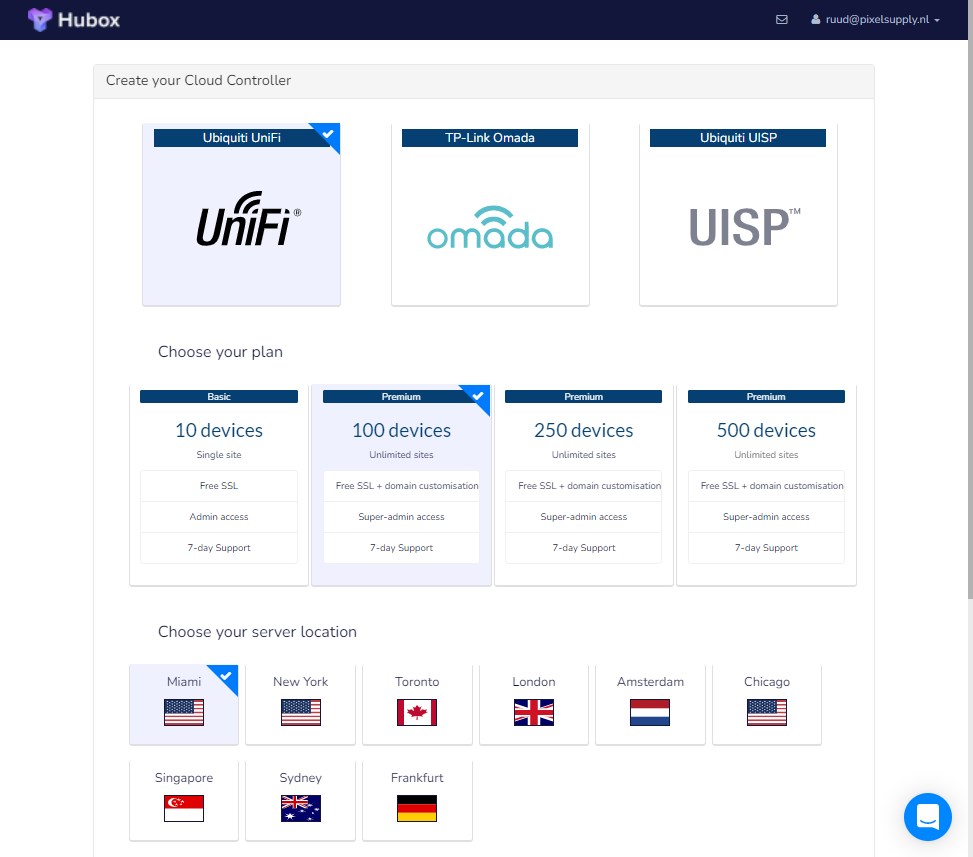
Hubox also hosts their controllers at Vultr, but only allows you to choose between 9 data centers. You can however choose which UniFi Controller version (between the last 3) you want to run on your UniFi network, but they don’t seem to test any UniFi versions internally.
Just like HostiFy, you can secure your Hubox account and controller with 2FA. Backups are made every day including an off-site backup to Amazon.
Their basic plan only supports 10 devices, a single site, and is hosted on a shared server. It costs only $15.- a month, but you can better buy a CloudKey for that money. (that is cheaper after a year). The premium plans start at $30.- per month for 100 devices.
Cloud Unifi
Cloud Unifi has been providing hosted UniFi controllers for more than 8 years now. They use dedicated hosting for the controllers and the servers are located in the US and Europe. Just like HostiFi, they test each new UniFi Network release internally before they update the controllers.
- 24/7 Monitoring
- Server and UniFi updates
- Nightly off-site Backups
- Custom domain
- SSL Certificate
- Migration support
- 2FA Authentication
Support is provided on the hosted UniFi controller, and back-ups are made every day and stored offsite. Plans start at $15 per month for 100 devices and for $75 per month you can manage 1000 devices.
UniFi Cloud Console
Earlier this year Ubiquiti released UniFi Cloud Console for US customers. At the moment there is still not a lot of information available about the console. From what I have seen so far, is it running on the latest version of UniFi network, and updating is done by Ubiquiti.
Backups are made in the same way as you can do now in the UniFi controller, as in, you can backup the configuration and restore it. Support is handled through the UniFi support team, and as mentioned earlier, they don’t always respond that quickly.

You can’t choose a location for your UniFi controller, that may come when it is also made available to other countries, but there is no information about that yet.
At the moment they offer only a single plan, which supports up to 500 devices, for $30 per month. A large plan is announced, which will cost $299 per month for 2000 devices.
Hosting your own UniFi Controller
Another option is to host your own UniFi controller. For a small environment with only a few devices, you could start with a $6/month Vultr VPS. But when you need to support 200+ devices, then you will be looking at a $25 to $40/month VPS.
But besides the hosting cost, keep in mind that you will also need to install the server, secure it, set up and configure a proper backup solution, and keep up with the monthly updates. If you take that all into account, including the downtime for (failed) updates, then a hosted UniFi controller may not look so expensive anymore.
Wrapping Up
A hosted UniFi controller may seem expensive at first, but you need to keep in mind that you do not only pay for the virtual machine but also for the experience and support of the engineers behind the platform. Having a good, knowledgeable support team available really contributes to a stable platform.
Also, you don’t have to worry about keeping the controller up-to-date. They take care of it for you after some thorough testing. When you have a small or medium-sized network, then UniHosted is a great provider to start with. For enterprise-size environments, you want to go with the proven solution of HostiFi.
Hosting your own UniFi controller is a perfect option when you want to start small and have the time to test new releases and keep the server up to date. But make sure that you probably secure the server and make offsite backups.
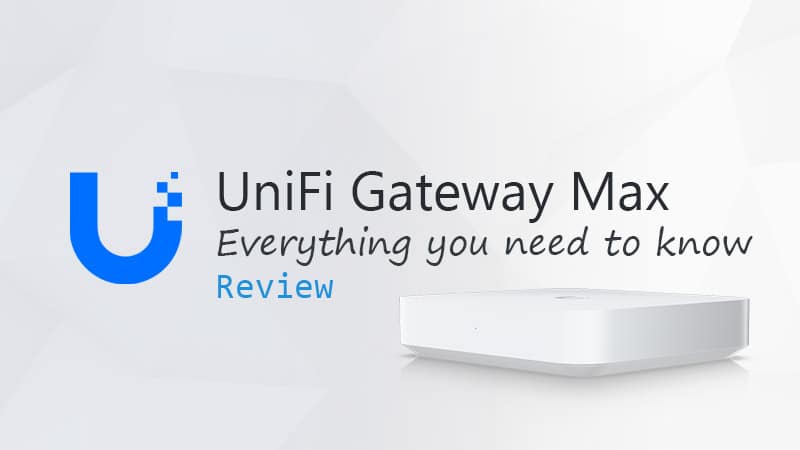
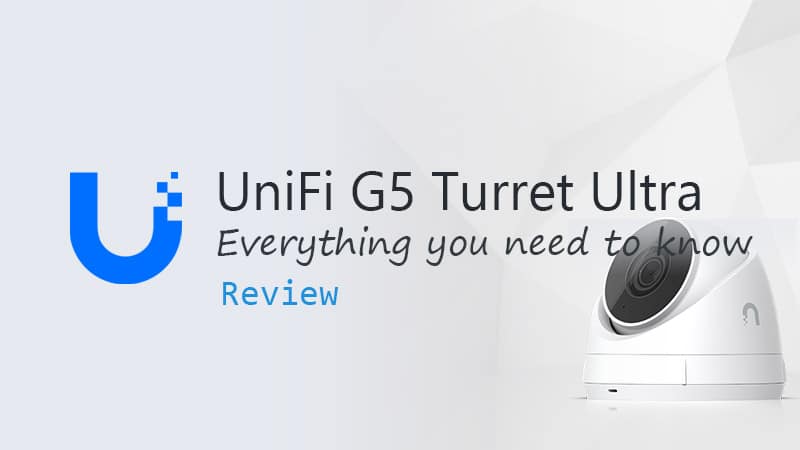
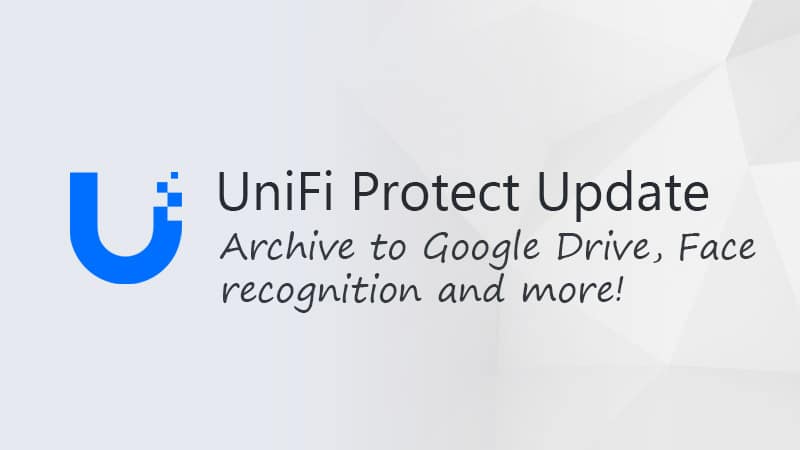


Hi Ruud,
I’m not quite sure I understand how a cloud controller can outperform an onsite controller.
One of my customer, a private school, has a UDM PRO SE as a controller. I’m using it also as a firewall. They have 52 devices (1 UDM, 1 Fiber switch, 5 switches & 44 APs).
How can a Cloud Controller be better than a local one?
Thanks.
Sebastien
The advantage of a cloud controller is that you can scale up the hardware specification, so you can add more CPU or memory, making the controller faster and capable of handling more clients.
Are you experiencing any performance issues at the moment with the UDM Pro SE?